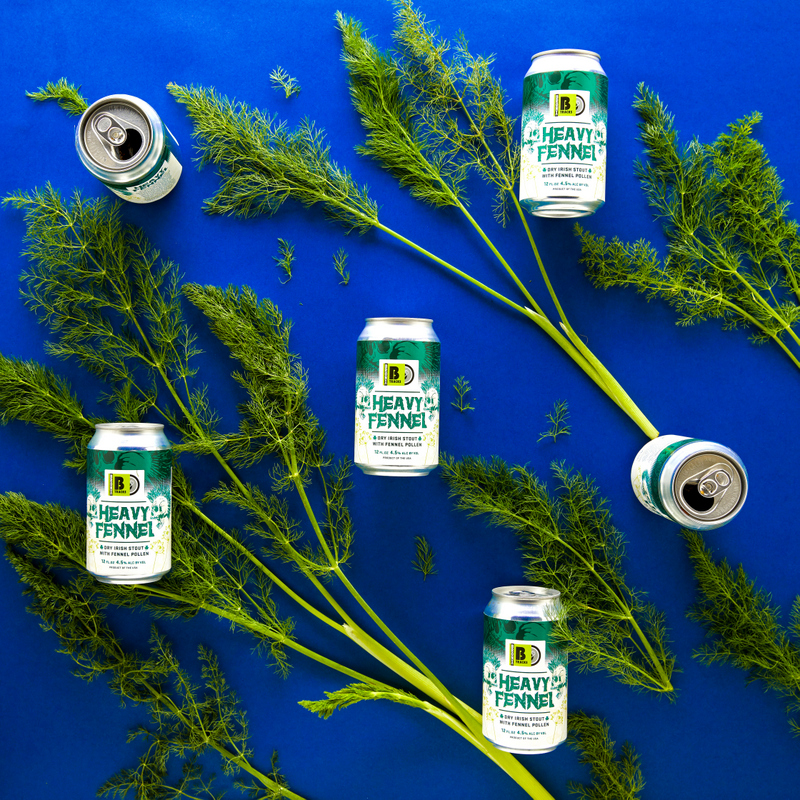
Fruits, vegetables, herbs and spices aren’t anything new to beer. Experimentation with each has been happening since the beginning of beer. Initially, herbs and spices were used for bitterness, flavor and aroma before the discovery of hops. Once we learned about the preservative nature of hops, we began using more and more hops until beer was defined as only four ingredients: water, malt, hops and yeast. These four ingredients give us so much depth when you mix in temperature and time, the possibilities really become endless.
Brewers, just like consumers, are always looking to do something a little different. We are on a quest for new flavors — something new and exciting. So, we’ve started adding more to the main ingredient list and experimenting. Brewers have had plenty of success with this but what you don’t often hear about is the challenges. Using fruits/vegetables/herbs/spices in beer can be tricky especially in the case when the ingredient hasn’t been used in beer before.
So, as a brewer, how can you begin incorporating unique ingredients?
- Research all you can about the specific ingredient. Go online or find a book and read what you can.
- Talk to other brewers. Other brewers are a great source of information as they are usually friendly and willing to provide plenty of insight into past experiences working with different ingredients.
- Get some of the ingredient you’re using. This is the most important — and obvious — thing to do. Smell it, cut it up, eat it and cook with it. This will give you a better idea of what flavors and aromas that ingredient contributes and how it can be manipulated.
- Tap into the culinary world. Another useful area to gather information and get inspired by ingredients is the culinary world. In most situations, there is some chef out there who has worked with some of your ingredients before. Just like the brewers from before, a chef will have his or her own observations but from a different vantage point. In some cases, they may be able to offer you other flavors that complement or enhance.
Working with our friends at Baldor Specialty Foods, we have been exposed to an extensive list of rare, high-quality produce and spices. One product they introduced me to is a spice called fennel pollen. Fennel pollen is currently very popular in some higher end kitchens and when I asked how those chef’s use it, I was told “They sprinkle it on everything.”
After reading as much as I could about the spice, I took some home and sprinkled some on some grilled vegetables. As a raw ingredient, it was hard to pick out anything other than anise/black licorice. But once I mixed in some carrots with charred grill marks, I found the roast profile really enhanced and changed the profile of the fennel pollen. Instead of being really intense, the fennel pollen was soft and added a soft nutty note with a delicate mint and marshmallow note.
With the research and the cooking experiment done, I felt confident that I could make a good beer with fennel pollen by mimicking the way the grilled carrots picked up the roasted flavors, in combination with the fennel pollen. For the sake of drinkability, I wanted to keep the abv low and the amount of roast to a moderate level to give the fennel pollen enough room to shine. The best choice with all these considerations was a dry Irish stout. Post fermentation, the beer had plenty of roast without being smoky or ashy and was creamy yet drinkable.
In the same vein as adding salt to your food, it is best to start small with your ingredient. I recommend using about half of what you think you should use and continue adding more until you reach your idea point. In the case of fennel pollen, I’m glad we started with half because it was actually the perfect amount. This dry Irish stout with fennel pollen ended as a creamy, medium bodied, easy drinking stout with notes of cocoa powder/milk chocolate, mint and marshmallow with a faint licorice note.
Nick Hyde is a brewer at The Bronx Brewery, a craft brewery based in New York City’s South Bronx neighborhood. The Bronx Brewery prides themselves on producing what they call “no-nonsense ales” — approachable, well-balanced, true-to-style beers with absolutely no gimmicks.





Leave a Reply
You must be logged in to post a comment.